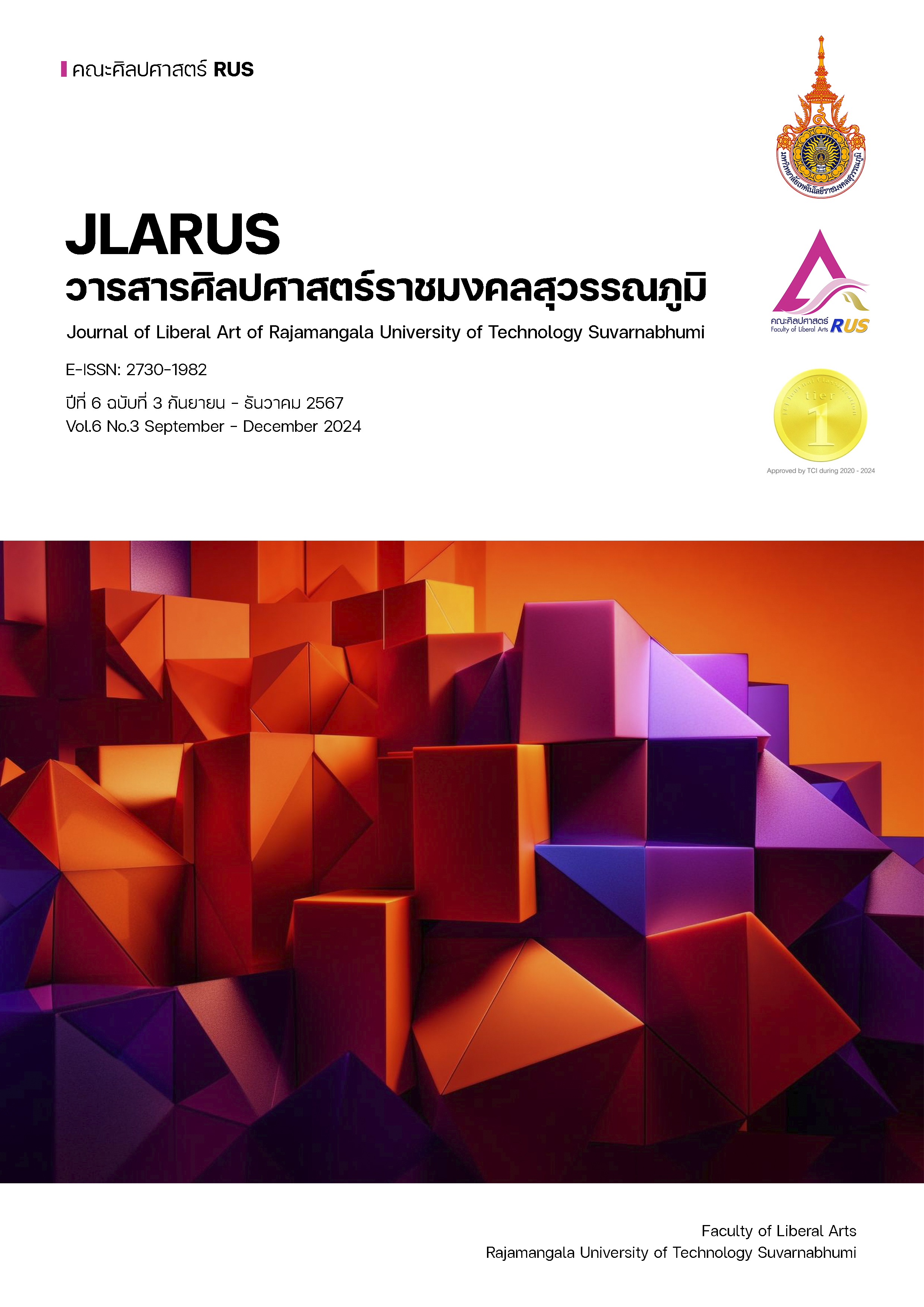DEVELOPMENT OF LEARNING MANANGEMENT RECREATION LEADERSHIP COURSE FOR UNDERGRADUATE STUDENTS AT RAJAMANGALA UNIVERSITY OF TECHNOLOGY SRIVIJAYA, SONGKHLA CAMPUS
Main Article Content
Abstract
The objectives of this research were: 1) to study the outcomes of learning management in the Recreation Leadership course for undergraduate students at Rajamangala University of Technology Srivijaya, Songkhla Campus, and 2) to assess student satisfaction with the learning management of the same course. The sample group for this research consisted of 35 undergraduate students and enrolled in the Recreation Leadership course at Rajamangala University of Technology Srivijaya, Songkhla Campus. These students were selected through purposive sampling based on specific characteristics relevant to developing recreational leadership skills. The research utilized the following tools: 1) a learning management plan for the Recreation Leadership course, 2) teaching documents for the Recreation Leadership course, 3) an academic achievement test for the Recreation Leadership course, and 4) a satisfaction questionnaire regarding the learning management of the course. The statistical methods used in this research included percentage calculations, mean scores, standard deviation, and t-test (Dependent Sample) analysis. The results of the research indicated that: 1) the average post-test scores of students in the Recreation Leadership course were significantly higher than their pre-test scores at the .01 level, and 2) the satisfaction assessment of the learning management in the Recreation Leadership course revealed that the overall satisfaction level was very high ( x̅ = 4.57, S.D. = 0.60).
Article Details

This work is licensed under a Creative Commons Attribution-NonCommercial-NoDerivatives 4.0 International License.
References
กรมพลศึกษา. (2564). การจัดกิจกรรมนันทนาการ. กรุงเทพมหานคร: กรมพลศึกษา.
กรมพลศึกษา. (2566). แผนพัฒนานันทนาการแห่งชาติ ฉบับที่ 2 (พ.ศ. 2566–2570). กรุงเทพมหานคร: กรมพลศึกษา.
กุลิสรา จิตรชญาวณิช. (2562). การจัดการเรียนรู้. กรุงเทพมหานคร: สำนักพิมพ์จุฬาลงกรณ์มหาวิทยาลัย.
เก่งกาจ เกลี้ยงแก้ว และคณิต เขียววิชัย. (2562). การพัฒนารูปแบบกิจกรรมนันทนาการแบบมีส่วนร่วมเพื่อเสริมสร้างความฉลาดทางอารมณ์ของนักเรียนระดับชั้นมัธยมศึกษาตอนต้น. Humanities Social Sciences and arts, 12(1), 548-564.
คฑาวุธ ด้วงปลี. (2564). การศึกษาผลสัมฤทธิ์ทางการเรียนวิชา นันทนาการเพื่อพัฒนาคุณภาพชีวิต เรื่อง ลักษณะและบทบาทของผู้นำนันทนาการการของนักเรียนระดับประกาศนียบัตรวิชาชีพ ระดับชั้นปีที่ 2. สุพรรณบุรี: วิทยาลัยการอาชีพอู่ทอง.
ทรงภพ เพชรอาวุธ. (2566). เอกสารประกอบการสอน วิชา 00018004 ผู้นำนันทนาการ. สงขลา: มหาวิทยาลัยเทคโนโลยีราชมงคลศรีวิขัย.
ไพศาล วรคำ. (2564). การวิจัยทางการศึกษา. มหาสารคาม: ตักสิลาการพิมพ์.
สำนักวิชาการและมาตรฐานการศึกษา. (2565). ตัวชี้วัดและหลักสูตรแกนกลางการศึกษาขั้นพื้นฐาน พ.ศ. 2551 (ปรับปรุง 2565). กรุงเทพมหานคร: ชุมนุมสหกรณ์การเกษตรแห่งประเทศไทย.
วิจิตร ศรีสะอ้าน. (2563). หลักการอุดมศึกษา. กรุงเทพมหานคร: สำนักพิมพ์จุฬาลงกรณ์มหาวิทยาลัย.
วิมลรัตน์ สุนทรโรจน์. (2565). นวัตกรรมเพื่อการเรียนรู้. มหาสารคาม: ภาควิชาหลักสูตรและการสอน คณะศึกษาศาสตร์ มหาวิทยาลัยมหาสารคาม.
ทิศนา แขมมณี. (2566). ศาสตร์การสอน. กรุงเทพมหานคร: สำนักพิมพ์จุฬาลงกรณ์มหาวิทยาลัย.
Herzberg, Frederick and others. (1959). The Motivation to work. New York: John Wiley and. Sons.
Hayashi, A., and Ewert, A. (2013). Development of Emotional Intelligence through an Outdoor Leadership Program. Journal of Outdoor Recreation Education and Leadership, 5(1), 3-17.
Smith, P., and Ragan, T. (1999). Instructional design. New York: John Wiley &. Sons.


